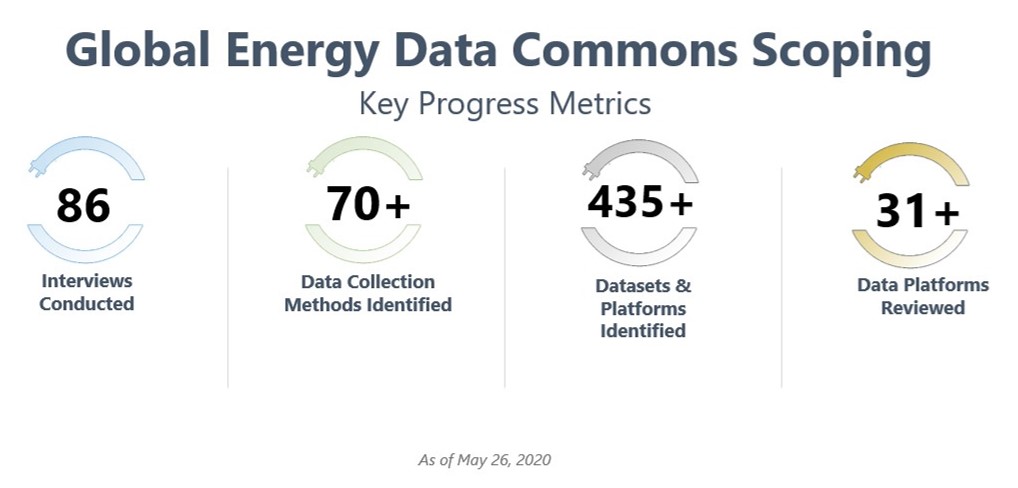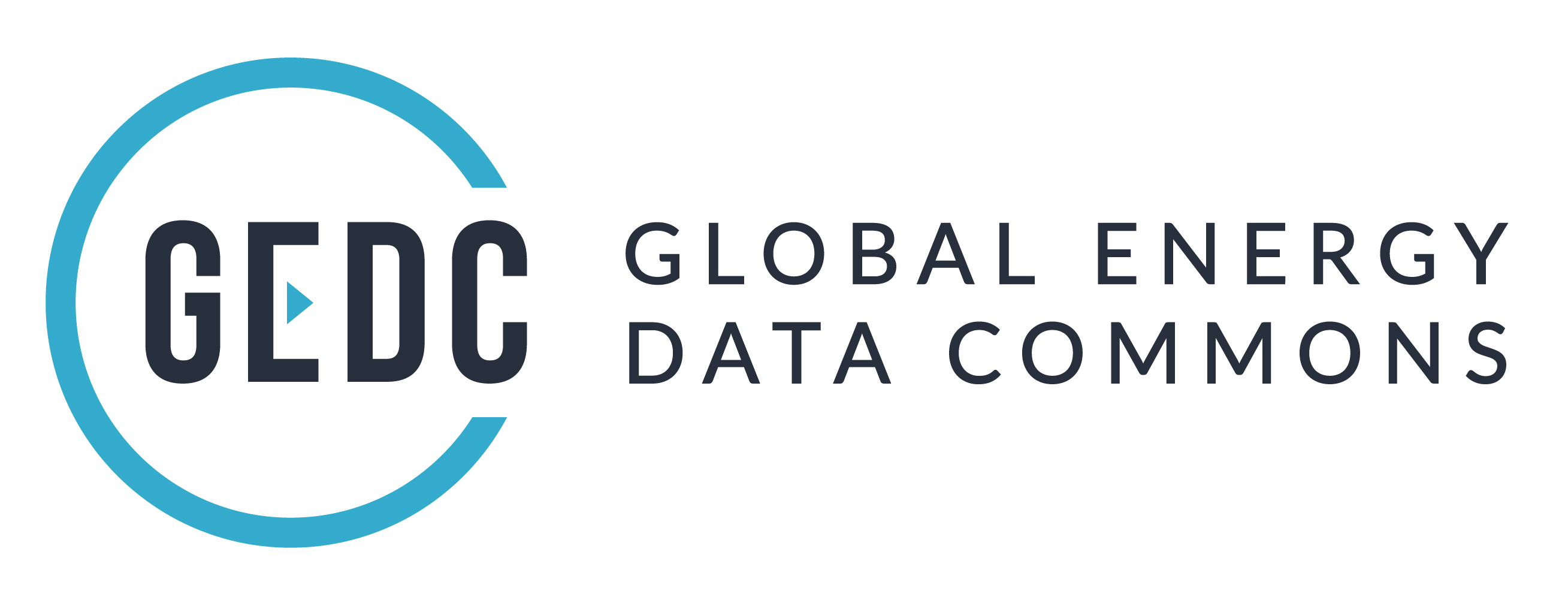National Science Foundation, Convergence Accelerator Phase I
The NSF Convergence Accelerator supports team-based, multidisciplinary efforts that address challenges of national importance and show potential for deliverables in the near future.
Our interdisciplinary team received a Phase I NSF Convergence Accelerator grant to scope out an open knowledge network to harness the energy data revolution. The Global Energy Data Commons (GEDC) expands on existing efforts for collecting and sharing open data and collaborative research for the energy sector. The project will create a more robust scientific foundation for energy systems management and planning, and help energy managers and policymakers plan for energy services that are reliable, affordable, accessible, and sustainable.
In Phase I of the project, the core project team has identified existing data, energy data gaps, methods used, and data priorities, which is informing the plan for creating the GEDC. The GEDC will enable researchers, practitioners, and policymakers to access open energy information with much greater data availability and interoperability, allowing more effective decision-making.

Our team represents an intersection of diverse disciplines including engineering, economics, machine learning, and energy policy. The GEDC platform is intended to:
- Create open and new knowledge: Provide open and interoperable historical energy infrastructure and natural hazards data with curated databases, application programming interfaces (APIs), online visualization tools, and application guidance.
- Inform assessment: Provide natural hazard exposure metrics for characterizing current exposure, historical trends, and uncertainty within the GEDC platform that informs assessment of risk and vulnerability and risk management strategies for system resilience.
- Build partnerships and a community: Create a coordinated network of researchers and users, with incentivized research challenges, that informs, enhances, and sustains the GEDC as a public resource on energy system exposure to natural hazards driven by user needs.
Following an extensive interview process and across the energy and research community, our team identified an initial priority focus area for the GEDC, identifying & monitoring natural hazard risks to the electricity systems and system resilience.
What’s an Open Knowledge Network?
An open knowledge network provides easy access to the data it stores. It is a collaboration of teams from all areas of science and engineering to create a shared, open infrastructure.
More Information
- Proposal Abstract (National Science Foundation, 2019)
- National Science Foundation awards $970,000 to Duke University and partners to improve access to global energy data (Duke University, 2019)
All details are subject to change

